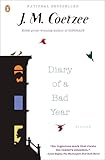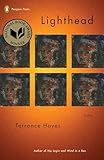1.
A few days past, I stepped into my town’s city council chambers to a sea of “Make America Great Again” hats and signs against “illegal aliens.” The council was meeting to decide whether the city would, in a largely symbolic gesture, oppose the idea of the Sanctuary City bill and sign onto the amicus brief suing the state.
One after one after one, men and women stood at the podium facing the council, donning red hats, draped in American flags, and snarled abuses about criminality and violence, about illegal aliens and rapists—the same vitriolic language espoused by the president. Those in favor of the bill were outnumbered, and a gentleman in the seat next to me would regularly turn to my mother and I to record our reactions to the vitriol—my mother, being a hijabi, was an easy target. If eyes are the window into the soul, and racism is a malignancy within it, those windows showed very clearly what was in front of us; I refuse to believe that the council members did not see it. As the night wore on, one line kept returning to me from Terrance Hayes, sitting at the edge of my tongue, that I wanted to yell: “May all the gold you touch burn, rot & rust.” It sat in my mouth, and I wished I could let it fly.
2.
 In a section of The Diary of a Bad Year called “On the Curse,” J.M. Coetzee meditates on how the fear of a curse is very integral to American literature, becoming in fact the central theme of Faulkner: “The theft of land from the Indians or the rape of slave women comes back in unforeseen form, generations later, to haunt the oppressor.” This idea of a curse, a uniquely American curse, is an anxiety reflected even earlier in Nathaniel Hawthorne:
In a section of The Diary of a Bad Year called “On the Curse,” J.M. Coetzee meditates on how the fear of a curse is very integral to American literature, becoming in fact the central theme of Faulkner: “The theft of land from the Indians or the rape of slave women comes back in unforeseen form, generations later, to haunt the oppressor.” This idea of a curse, a uniquely American curse, is an anxiety reflected even earlier in Nathaniel Hawthorne:
I know not whether these ancestors of mine bethought themselves to repent and ask pardon of heaven for their cruelties; or whether they are now groaning under the heavy consequences of them in another state of being. At all events, I, the present writer as their representative hereby take shame upon myself for their sakes and pray that any curse incurred by them—as I have heard, the dreary and unprosperous condition of the race, for many a long year back would argue to exist—may now be henceforth removed.
Even from D.H. Lawrence: “One day the demons of America must be placated, the ghosts must be appeased, the spirit of place atoned for. Then the true passionate love for American soil will appear. As yet, there is too much menace in the landscape.” A question: the ghosts of whom?
By this point, it may be redundant to claim that the idea of an American curse is integrally bound up with race, with the machinery of its violence, and the way it occurs in any contemplation of whiteness. Now read:
America, you just wanted change is all, a return
To the kind of awe experienced after beholding a reign
Of gold. A leader whose metallic narcissism is a reflection
Of your own. You share a fantasy with Trinidad
James, who said, “Gold all in my chain, gold all in my ring,
Gold all in my watch” & if you know what I’m talking
About, your gold is the yellow of “Lemonade” by Gucci
Mane: “Yellow rims, yellow big booty, yellow bones,
Yellow Lambs, yellow MP’s, yellow watch.” Like no
Culture before us, we relate the way the descendants
Of the raped relate to the descendants of their rapists.
May your restlessness come at last to rest, constituents
Of Midas. I wish you the opposite of what Neruda said
Of lemons. May all the gold you touch burn, rot & rust.
3.
Terrance Hayes, recipient of the MacArthur Genius Award, the National Book Award, and a litany of other prizes, is one of the most gifted poets working in our language. His new book, a short volume of sonnets, American Sonnets for my Past and Future Assassin, is a gift in a fraught moment. These sonnets, existential, political, personal, retain a moral ferocity and urgency that propels that entire cycle forward.

 These are not Shakespearean or Spenserian sonnets, but what ought to be called Colemanian sonnets after Los Angeles poet Wanda Coleman, whose improvisational free jazz approach to sonnets is the starting point for these poems. Hayes builds upon this conceptual framework for an idea of an “American Sonnet.” Absurd, pun-filled, shocking and ironic, there is a freedom in these poems that comes marching forward in the same way Coleman’s poems still measure toward a common formal language. Hayes’ voice is level, and his penchant for formal experimentation—which led him to creating his own formal conventions in Lighthead and Hip Logic (such as the Pecha Kucha)—find him immediately at home. What I am trying to say is that if poems are a house, and sonnets are gothic architecture, then Terrance Hayes is our Antoni Gaudí.
These are not Shakespearean or Spenserian sonnets, but what ought to be called Colemanian sonnets after Los Angeles poet Wanda Coleman, whose improvisational free jazz approach to sonnets is the starting point for these poems. Hayes builds upon this conceptual framework for an idea of an “American Sonnet.” Absurd, pun-filled, shocking and ironic, there is a freedom in these poems that comes marching forward in the same way Coleman’s poems still measure toward a common formal language. Hayes’ voice is level, and his penchant for formal experimentation—which led him to creating his own formal conventions in Lighthead and Hip Logic (such as the Pecha Kucha)—find him immediately at home. What I am trying to say is that if poems are a house, and sonnets are gothic architecture, then Terrance Hayes is our Antoni Gaudí.
However, more than an architect, Hayes is an alchemist whose poems can turn gold into copper or a house into a prison:
I lock you in an American sonnet that is part prison,
Part panic closet, a little room in a house set aflame.
I lock you in a form that is part music box, part meat
Grinder to separate the song of the bird from the bone.
I lock your persona in a dream-inducing sleeper hold
While your better selves watch from the bleachers.
I make you both gym & crow here. As the crow
You undergo a beautiful catharsis trapped one night
In the shadows of the gym. As the gym, the feel of crow
Shit dropping to your floors is not unlike the stars
Falling from the pep rally posters on your walls.
I make you a box of darkness with a bird in its heart.
Voltas of acoustics, instinct & metaphor. It is not enough
To love you. It is not enough to want you destroyed
These poems are acutely aware of the literary tradition Hayes works in, with as many references to James Baldwin, Toni Morrison, to Derek Walcott and Langston Hughes, wrestling with the implications of blackness and literary tradition. Hayes’ inhabits the deeply troubling historical moment. But these poems are timeless, by which I mean these sonnets annihilate any difference between past and future.
A motif that appears regularly in these poems is the term, “There never was a black male hysteria.” He explains in his notes, “Many years ago the poet Anthony Butts told me he was writing a book called Male Hysteria…alas, the book never came to be.” In a book unwritten, there is neither future nor past—only the possibilities of both. These poems puncture a hole in time, fragmenting a grief, a rage, a rebellion, an irony so deep that one can only call them blue. These poems are true; they were true before they were written and will be true in whatever future we are slouching toward.
Sitting in those council chambers, in front of this racism unmasked and parading as political theater, those lines sat on my tongue, and I wish—oh, how deeply I wish—I could have turned and said to each and every one of them, “May all the gold you touch burn, rot & rust.” I got home quite late that night but pored over these sonnets again and again, as if they were gospel.



